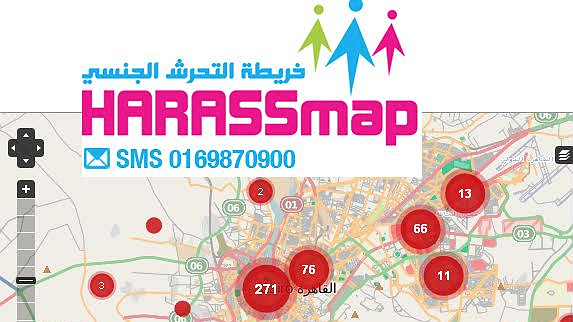
Creating Community Engaged Advocacy Campaigns: Lessons from HarassMap
HarassMap is an award winning volunteer-based initiative founded in 2012 that works to engage Egyptian society to create an environment that does not tolerate sexual harassment. So how can advocacy workers and organisers engage their communities? And what lessons can be learned from HarassMap’s work? We spoke with Alia Soliman, the head of marketing and communications at HarassMap, to answer some of these questions.
1. In what ways do the community partnerships that you have established at Harassmap influence the prevention of sexual harassment?
You can't change a country's culture towards sexual harassment overnight and we realise that our goals at HarassMap require a long term strategy. Our community partnerships team works with individuals and institutions all around Egypt to encourage them to stand up to sexual harassment. Through our guidance and mentoring they support our efforts by raising awareness in their communities and institutions, help in showcasing how successful sexual harassment policies are enforced which in effect creates a snowball effect. These partnerships educate, inform and provide a model for organisations and other communities to follow.
2. Communities can mean many things, how do you identify potential community partners and determine the role they might play?
We first begin with a needs assessment because obviously we want to work with partners who have an interest in addressing sexual harassment. A community could be an independent group of young individuals, a school a group of employees etc. We then identify the scope of work and the ways we could work together. This differs between partners and it could range from providing educational material to conducting a training or training a group of volunteers. We then look at whether or not we have the capacity to provide the resources needed for each partner. Finally we look at the influence that a potential community partner might have.
3. Once you’ve identified potential partners, what strategies do you use to engage them effectively and overcome the obstacles that come with dealing with diverse groups?
We use a participatory approach in everything we do. This is achieved by developing a deep understanding of what our potential partners really need to ensure that they are part of the process. Every group we work with sees the information we provide with their own lens. The key is to create customised partnerships. Having a one size fits all advocacy approach can’t result in success so we keep in mind the needs and expectations of both our partners and ourselves. Another important tip is to always document and evaluate our strategies and methods regardless of how successful or unsuccessful we were.
4. How do you manage having people with different levels of experience on the same team and how to utilise people’s differences to your advantage?
We constantly seek diversity in the groups we work with. Having different opinions and ideas not allows us to grow as an advocacy group but it gives us important insights. Training and mentoring along the way instead of a one time training approach is one way we deal groups that vary in experience and knowledge. We also work hard to make sure that every person's strengths are identified and utilised and that the areas that need improvement are addressed instead of ignored.
5. What are some of the key lessons that have really stood out from the work you have been doing?
I can summarise this by saying:
- Remember that change takes time and is a process.
- Don’t make presumptions about potential partners in your community. Get to know them really well and move from there.
- Always ask yourself “ How can we maintain and sustain what we are doing?”.
- Creating community partners means that you're creating potential leaders and that this in itself is a tipping point for change.
Looking for more advocacy strategy tips? Sign up for GreenPeace’s course on “How to create ‘people powered’ campaigns”.
Related courses

90 mins
 School of Data
School of Data
90 mins
 School of Data
School of Data Rory Peck Trust
Rory Peck Trust
50 mins
 Rory Peck Trust
Rory Peck Trust
Blogs

6 useful resources for journalists covering Covid-19
With a global pandemic spreading throughout the world, journalists are under increasing pressure to report accurate and relevant news for the masses. Often when covering a crisis, those on the reporting frontlines compromise their physical safety and mental health. To show some solidarity, the Advocacy Assembly team curated a list of useful resources from other organisations leading the way on this.

5 ways to find data for your next story
Data journalism is fast becoming a big trend in newsrooms across the globe. However, data isn’t always so easy to find. Here are five ways to get data for your next article.



